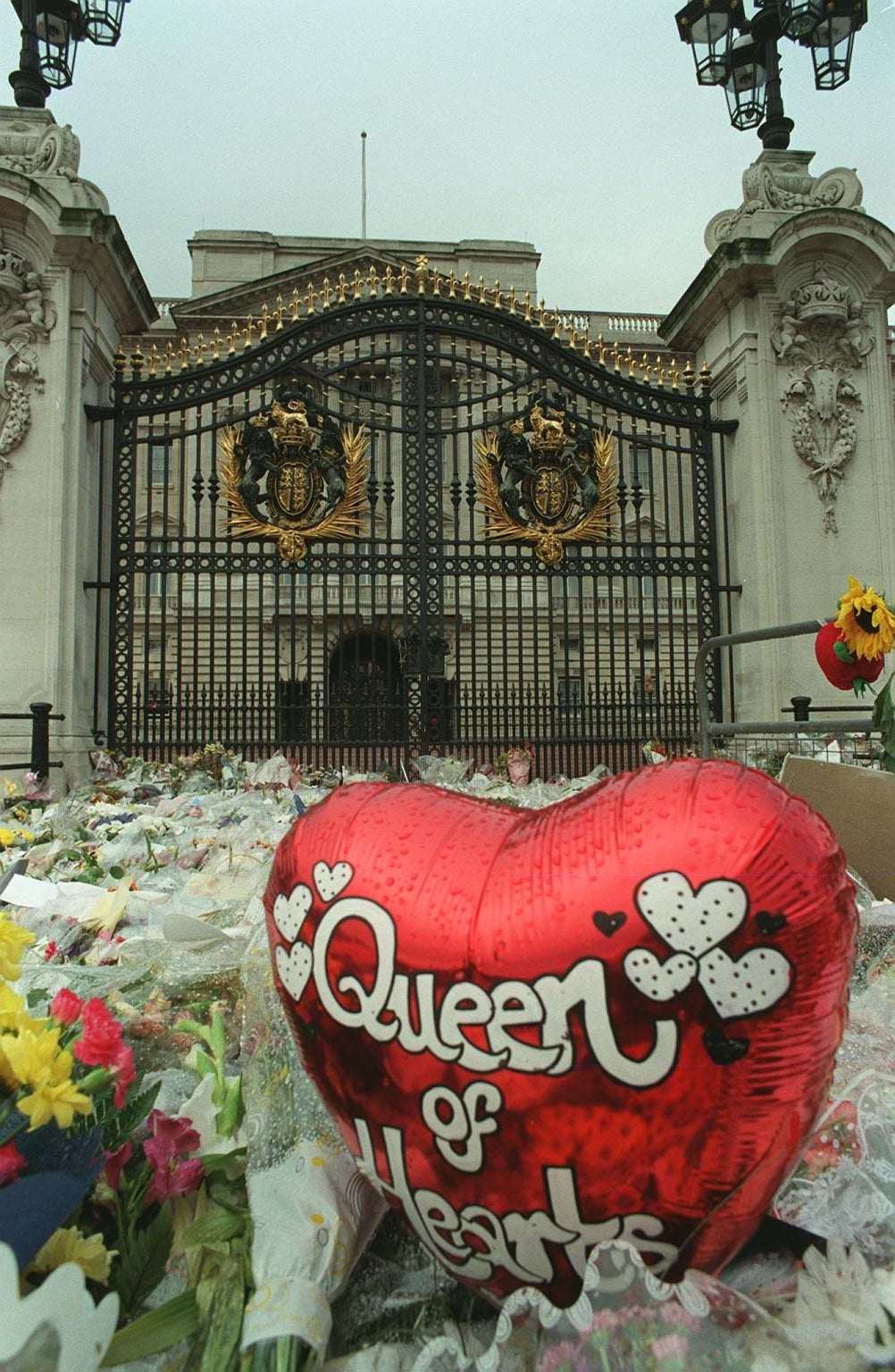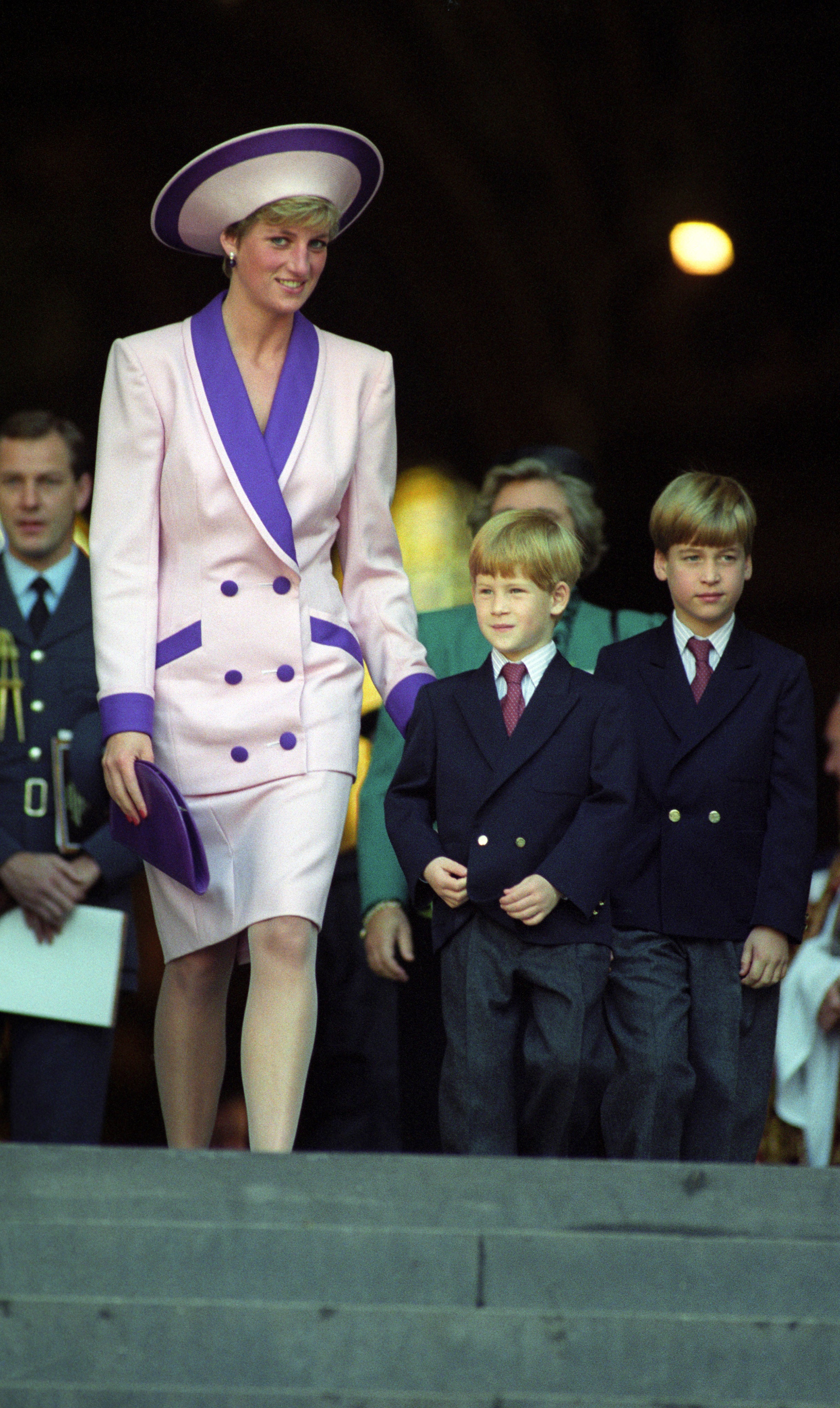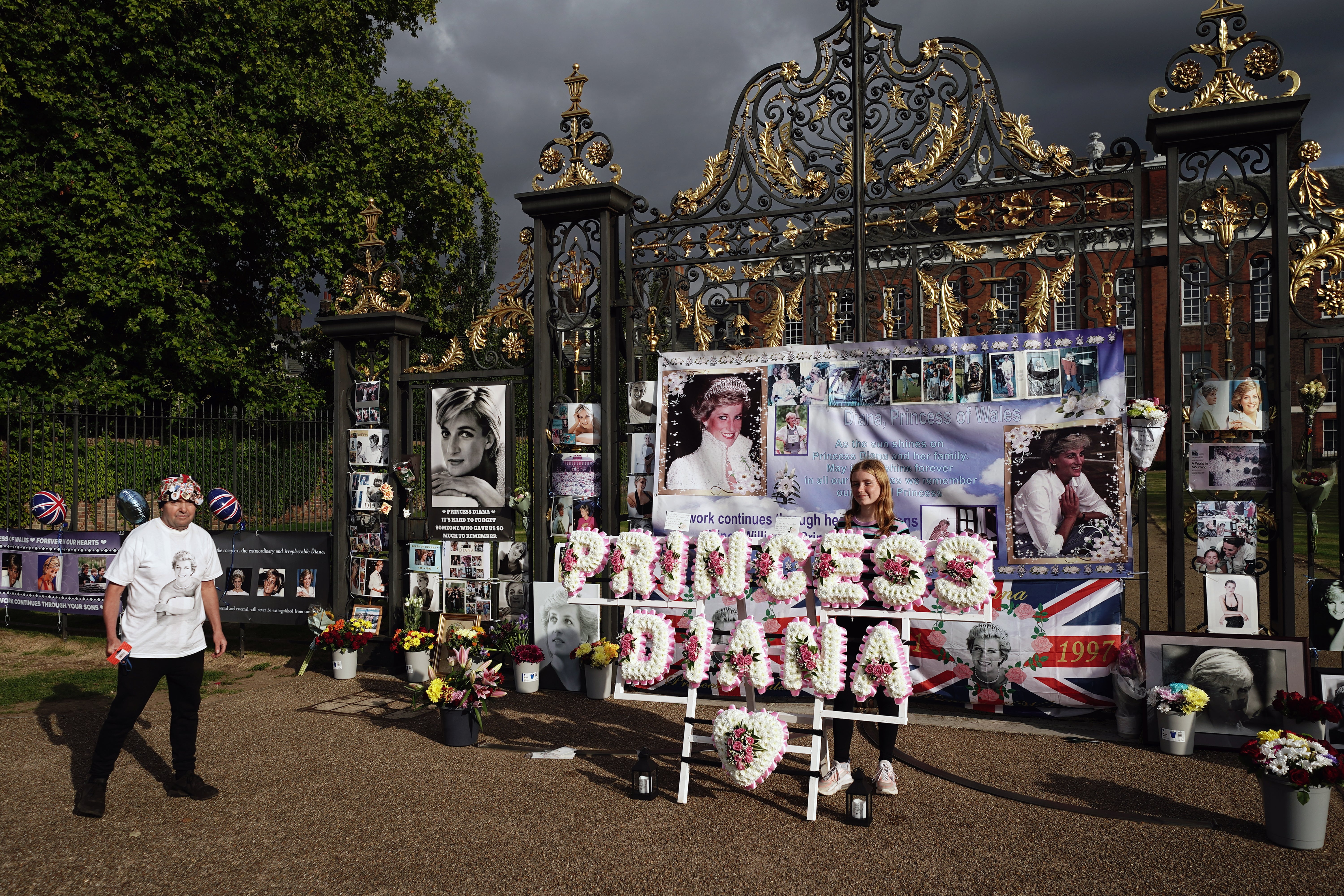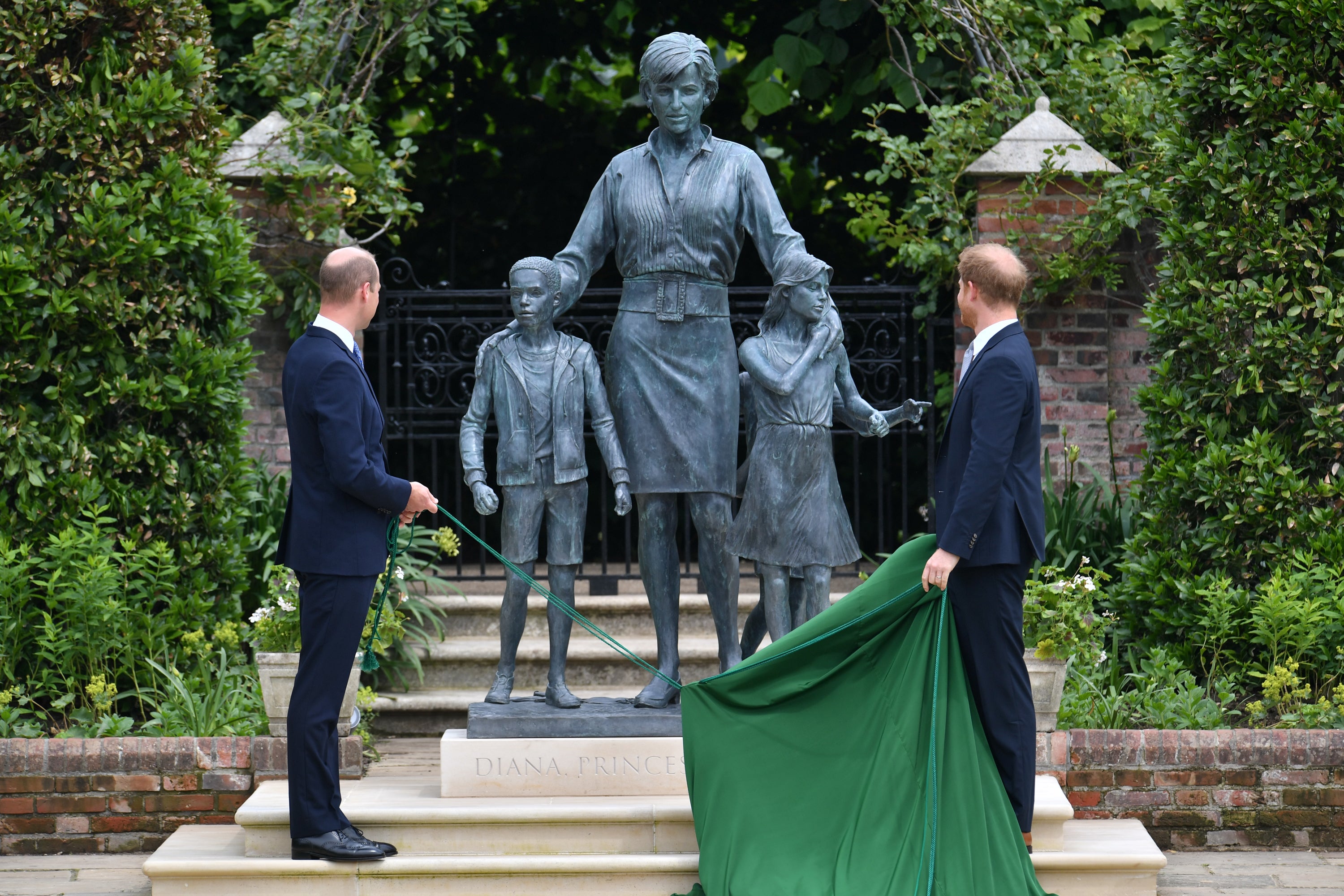
The flag at the family home of Diana, Princess of Wales has been lowered to half mast on the 25th anniversary of her death.
The princess’s brother Earl Spencer shared a poignant untitled photo of the tribute on the flagpole at Althorp House, set against the backdrop of a clear blue sky.
Diana – the mother of the Duke of Cambridge and the Duke of Sussex – was just 36 when she was killed in a car crash in Paris on August 31 1997.
She is buried on an island at the centre of an ornamental lake known as The Oval on the Althorp estate in Northamptonshire.
The lowering of the flag for the princess holds much symbolism, with the lack of such a tribute having been the source of outrage in the days that followed her sudden death.
Diana’s death triggered one of the monarchy’s worst crises in modern history.
The flag pole at Buckingham Palace remained bare, as was the protocol, because the Queen was away in Scotland, comforting William and Harry.
Newspaper headlines screamed “Show us you care” and “Where is our Queen? Where is her flag?”.
The monarch, who eventually addressed the nation five days after the princess’s death, relented by flying the union flag at half mast over Buckingham Palace for the first time on the day of Diana’s funeral.
Diana’s brother Charles gave a controversial eulogy at the princess’s funeral which was seen as an attack on the royal family.
Earl Spencer vowed to Diana in his speech that her “blood family” would do all they could to protect William and Harry “so that their souls are not simply immersed by duty and tradition but can sing openly as you planned”.

Harry has said he will “share the spirit” of his mother with his children Archie and Lilibet as he marks the anniversary of her death on Wednesday.
Speaking last week after a fundraising polo match for his charity Sentebale, named in memory of his mother, he said: “I want it to be a day filled with memories of her incredible work and love for the way she did it.
“I want it to be a day to share the spirit of my mum with my family, with my children, who I wish could have met her.
“Every day, I hope to do her proud. She was tireless in her work to support and destigmatise those experiencing HIV/AIDS. Fittingly, her favourite flowers were forget-me-nots.”

Tessy Ojo, chief executive officer of The Diana Award, established to promote the princess’s belief young people have the power to change the world for the better, has paid tribute to the royal and described how she left flowers at Kensington Palace after her death.
Ms Ojo said: “Her ability to connect with people though kindness and compassion is one of her most significant legacies. She left a mark on all our lives.”
She added: “I can only imagine how immensely proud she would be of the tens of thousands of young people from across the world who are continuing her legacy.”
Tributes including a floral display of white chrysanthemums spelling out “Princess Diana” adorned with pink roses and ribbons, and dozens of photos and messages were left by fans of the princess – some of whom still make the personal pilgrimage every year – at the gates of her former royal home of Kensington Palace.

Diana broke new ground by championing issues such as Aids awareness – famously holding the hand of a man with the illness – as well as highlighting homelessness and joining campaigners calling for a ban on landmines.
Her fashion sense made her a cover star for magazines and newspapers across the globe and even after she broke away from the royal family was still seen as the modern face of the monarchy.
Diana’s sons jointly paid tribute to her last summer – her 60th birthday – when they unveiled a bronze statue they commissioned of the princess in the garden of Kensington Palace.
Divided on many issues, William and Harry briefly put on a united front despite their long running rift.

The BBC vowed last month never to broadcast Diana’s 1995 Panorama interview again in the wake of the Dyson inquiry, which found journalist Martin Bashir had used “deceitful behaviour” to secure the scoop.
Bashir faked bank statements which he showed to Diana’s brother to gain access to the princess.
William and Harry, in separate statements, condemned the BBC for its treatment of their mother, with William saying the interview fuelled her “fear, paranoia and isolation”, and Harry saying “the ripple effect of a culture of exploitation and unethical practices ultimately took her life”.







